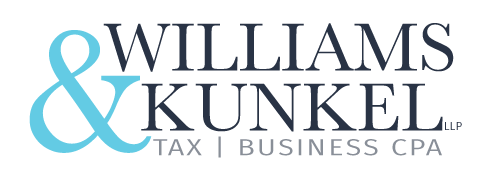How did you feel about making more money? (DFW Tax Pros: Save Your Business Money)
You probably could achieve this by working harder, but what if you could be smarter with the money you earn now?
Having more money by being smarter, rather than by working harder, is something you shouldn’t overlook.
Tax planning is one way to work smarter.
Tax planning is not just implementing a strategy or two. It’s putting together a plan that involves several legal strategies to meet your family and business goals.
Introducing DEAPR (“Deeper”)
You might want to go DEAPR (pronounced “Deeper”) with your planning. Here’s what it means:
- D = Defer
- E = Eliminate
- A = Arbitrage
- P = Pay now, none later
- R = Reduce
By thinking of this framework, you can come up with multiple strategies as the ingredients to a good tax plan.
Let’s look at each in more detail.
Defer
Defer means to reduce taxes today, even though you will be taxed in the future. Simple ways to defer are contributing to your 401(k), IRA, or depreciating real estate. Complex ways might be a Defined Benefit Plan or a cost segregation study.
Eliminate
Eliminate is completely getting rid of a tax. A simple example might be gifting appreciated stock to someone in a 0 percent capital gains bracket. Let’s say you wanted to help your parents, who have very low income. To give them $15,000 of cash, you probably had to make somewhere between $20,000 and $30,000 before tax (depending on your state of residence). Instead, if you gifted them highly appreciated stock worth $15,000 (that you have held more than a year), they could sell that stock and pay zero tax (assuming they stay below the $78,750 Adjusted Gross Income limit for 2019). Pretty cool: You just eliminated taxes.
Arbitrage
When possible, Arbitrage tax rates. If you can re-characterize income or assets so you get taxed more favorably, then you are “arbitraging” the tax. A simple example is holding an asset for more than a year before selling at a gain. If you sell after holding the asset for one year or less, you will pay ordinary income taxes on the gain (the highest bracket for federal is 37 percent). On the other hand, if you hold for more than a year, you will pay capital gains (the highest rate is 20 percent, though Net Investment Income Tax could apply). Thus, you will be taxed less by arbitrage. There are many more advanced ways to accomplish this, but I think you get the idea.
Pay
Pay now, none later. This is not going to give you any tax benefit today but it will reduce your taxes in the future. Obvious ways to do this are Roth IRAs, Roth 401(k)s, and life insurance. Don’t jump to the conclusion that this type of tax positioning isn’t important. Like Yogi Berra said, “It’s tough to make predictions, especially about the future.” But the future will come, and I’d like you to be positioned as well as possible when it does. For higher levels of wealth, Private Placement Life Insurance (PPLI) can provide the same benefits of life insurance (tax-deferred growth and, when structured properly, tax-free distributions) without the hidden commissions and surrender charges of traditional life insurance.
Reduce
Simple ways to reduce might be by taking the home office deduction, Section 179 purchases (like vehicles that weigh more than 6,000 pounds), or Health Savings Accounts (HSA). A more advanced strategy might be utilizing a Donor Advised Fund or 199A of the Tax Cuts and Jobs Act.
Conclusion
Using a framework like DEAPR can help you put together a proactive, forward-looking plan so you are only paying the taxes you are legally obligated to pay.
How do you put this together?
It takes a team.
Start with your accountant and financial adviser, but utilize a tax attorney, estate attorney, or insurance specialist as needed.
Do it legally. And go DEAPER on your tax planning, so you can have more money without having to work harder!
Call Williams & Kunkel CPA today in Flower Mound at 972-446-1040 to have a chat and find out how you can save money on your taxes as a real estate professional.
In addition, you can connect with us to receive updates throughout the business week by following us on Twitter or LinkedIn or liking us on Facebook.
Source: Inc

